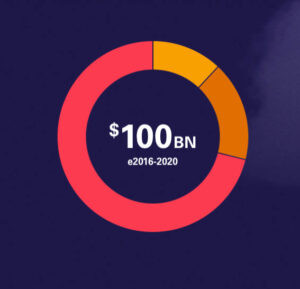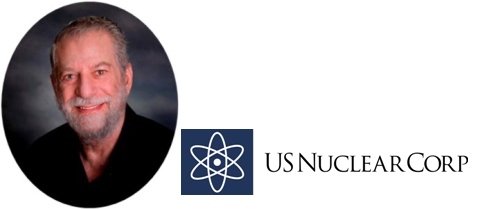CEOCFO: Would you tell us about your involvement with drones?
Mr. Goldstein: We all know that drones are used in a wide variety of fields at this time. The show great video and I believe they can even pick up sounds. Some use infrared cameras to look for hot spots in electrical systems or the temperature of the plants on a farm.
We just participated in a major drone conference in Las Vegas and the response to our product was enormous. Out of 215 vendors we were the only on offering a full weather drone capable of a heavy payload (up to 19 pounds) with radiation and chemical sensors. Several different participants said that they were looking for exactly what we offer. They were excited to learn we could detect radiation and chemicals such as methane from the air. We anticipate a similar response at the upcoming Drone World Expo in San Jose November 15-16, 2016.
Basically, drones are airborne robots. And just like robots in war, or in disaster relief, there are a lot of places where you really do not want to send somebody because it is dangerous. By instrumenting drones with chemical and radiation sensors, we are able to get information that is otherwise dangerous to obtain, or even impossible to get. For instance if there is a cloud above a burning hospital or whatever, know what contamination is in the cloud, providing critical information to determine mitigation and evacuation strategies without putting first responders at risk. The risk of entering a cloud of unknown contamination is incredibly dangerous to both first responders and news crews in helicopters. With the advent of commercial quality drones capable of carrying sensor instruments for aerial radiation and chemical detection the risk factor goes way down.
CEOCFO: How are you interacting with the companies that are producing drones? What kinds of arrangements are you looking at or have in place?
Mr. Goldstein: In our most recent press release, we announced our strategic alliance with FlyCam UAV, which is a company that builds their own drones and also buys and resells drones. The drones we are using are quite unique with a good payload weight. They are not just carrying a video camera, in addition to the video camera our equipment weighs a few pounds and FlyCam UAV provides us with drones with exceptional payload weight capability. Weather and wind speed, good weather and bad weather, flying times and speed, are also contributing factors that need to be addressed with the drone quality FlyCam UAV provides for us.
CEOCFO: Is there government regulation regarding your role?
Mr. Goldstein: The drone pilot needs to pass a certification written test. They have to know the regulations and they have to know how to read weather patterns and be aeronautical experts to some degree. We are licensed by the state of California to calibrate instruments. The FAA for flying the drone and the local radiation license are required.
CEOCFO: Would you tell us about your global presence?
Mr. Goldstein: About 60% of our business is overseas, 40% domestic. We have excellent name recognition for our Overhoff Technology brand, and favorable name recognition for our other two brands, Technical Associates and Electronic Control Concepts as well. In addition to U.S. and Canada, we sell in Korea, in China; South America, and in most of the NATO European countries.
CEOCFO: How do you overcome some of the challenges with selling in a country like China? Do you work directly with your customers? Are you working through distributors or representatives?
Mr. Goldstein: We have been working through distributors, and that works quite well. We have been selling some materials into China for many years and we are increasing our efforts there. We are now opening an office in Beijing. This is important because our customers need to be reassured that there is a place to take their instruments if they need repair or just to have a friendly ear that they can call in the same time zone.
CEOCFO: One of the things on your site relates to innovation. “Innovation is the rule at US Nuclear Corp.” How so?
Mr. Goldstein: As I mentioned before, we specialize in measuring the hard to detect materials. In doing so requires innovation, creativity and imagination to design and build instruments that will perform accurately and dependably. Our line of water monitors are a really good example of such ingenuity and innovation. The Fairfax water district purchase one of our water monitors to protect the people and government in Washington DC. Tritium is incredibly difficult to measure and Overfhoff Technology is known globally for the instruments that have been developed to approach such a difficult subject.
CEOCFO: How is business today?
Mr. Goldstein: It is good. As you said, the general public does not know that there is radiation to measure, unless something like a Fukushima event takes place. As I was saying every hospital has a nuclear medicine department and their imaging department. All imaging is done with X-rays or radioactive materials. All the good colleges have chemistry and other departments that have radioactivity. With the development of new drugs radiation is used as a tracer; in other words to determine if their special new drug or special new molecule went to the target organ. So it is used as a tracer. Radiation is sort of everywhere, even though we do not realize it. For instance, headlights that are super bright, almost a blue white are made with Xenon, which is radioactive.
CEOCFO: Put it together for our readers in the business and investment community. Why pay attention to US Nuclear Corp?
Mr. Goldstein: We have a protected market with our instrumentation providing measurement for hard to measure elements. It is not just like opening a restaurant because you think your food is better than anybody else’s – we make products that nobody else makes. We are protected in that way. But also, we are the only ones that I have been able to find outside of the military that is putting sensors on drones, and I know that is going to be very big. We also are coming out with a radon measurement device that will help stop radon exposure. Radon is recognized as the second biggest cause of lung cancer after smoking. I think US Nuclear Corp has a very bright future as we meet the demand for instruments that fill a need which only we meet as described earlier.
To read complete article click
here .


 Technical Associates is proud to announce the NextGen-SSS –
Technical Associates is proud to announce the NextGen-SSS – 


 No matter the outcome of any one presidential election, reports show that about 90% of the existing nuclear reactors in the country are soon due to be relicensed for an additional 20 years, some for as long as 40 years — far outlasting the tenure of any president. Furthermore, the U.S. is projected to remain the biggest global producer of nuclear power for 10 more years at the very least; that is, until China completes their 100 planned new nuclear units.
No matter the outcome of any one presidential election, reports show that about 90% of the existing nuclear reactors in the country are soon due to be relicensed for an additional 20 years, some for as long as 40 years — far outlasting the tenure of any president. Furthermore, the U.S. is projected to remain the biggest global producer of nuclear power for 10 more years at the very least; that is, until China completes their 100 planned new nuclear units.

 There are 100 commercial nuclear reactors operating within 60 power plants in the U.S. alone. On average, these reactors are about 34 years old, while the oldest, Nine Mile Point Unit 1 and Oyster Creek, have been in use since December 1969.
There are 100 commercial nuclear reactors operating within 60 power plants in the U.S. alone. On average, these reactors are about 34 years old, while the oldest, Nine Mile Point Unit 1 and Oyster Creek, have been in use since December 1969.
